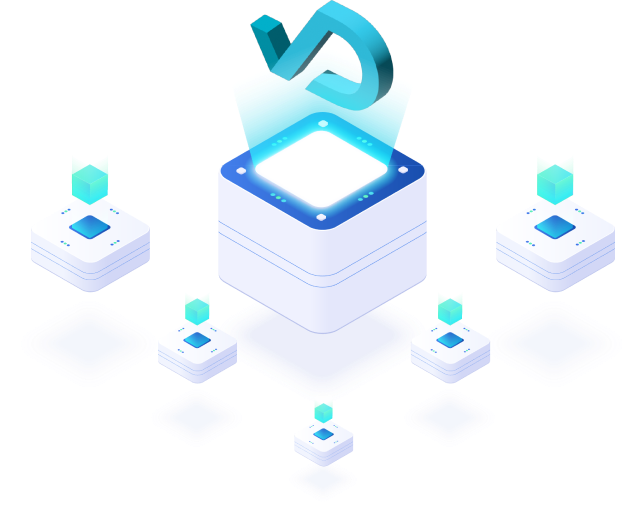Investors Solutions
Digital Assets Code Risk Scoring
Understand your crypto and NFT’s code features in a glimpse
Dowsers enables Investors to understand the underlying properties of the code of a large variety of digital assets (cryptos, NFTs) and DeFi protocols.
Receive a synthetic, mathematical and comprehensive code risk analysis and scoring by our automated formal verification platform.
$2B
lost in 2023 due to security breaches in smart contracts
+60%
of projects do not fix discovered vulnerabilities
90%
of losses come from smart contract vulnerabilities
70%
of developers lack formal training in smart contract security
Code Risk Report
The Dowsers platform deeply analyses the code of a smart contract and automatically generates a detailed risk report that includes the following informations:
The Smart Contract Scoring
- Dangereous
- Acceptable
- Reliable
- Trustable
Categories of the risks found in code
- Block of funds unilaterally
- Withdraw of digital assets without consent
- Change of token and or DAO rules without notice
Detailed explanations
- Technical mechanism
- Financial consequence
- Precedent hacks

Plans
Contact us for high level formal verification services
Pains & Benefits
Minimise Risk, Maximise Trust : The Benefits of Automated Formal Verification

Benefit from the power of mathematics
“Code is law” but other testing solutions can make mistakes or miss vulnerabilities, in particular for very complex code.
Formal verification is the state-of-the-art technology for smart contract auditing
Save time and money
Don’t wait weeks for an analysis of your digital asset code risk that costs a hell of money.
Get your reliable report in a glimpse.
Decide with knowledge
Don’t go blind unaware of potential fatal vulnerabilities!
Understand precisely how the code may impact your digital assets and make decisions trusting your smart contract.
Tailor Made Solutions
Dowsers’s research team is highly experienced in managing complex software systems, analysing applications with hundreds of thousands of lines of code critical to human safety.
Contact us if you need high level formal verifications solutions not currently on our webpage.
Glossary
Main major on-chain risks faced by Investors of digital assets can be categorised in 3:
- Block of funds unilaterally
- Withdraw of digital assets without consent
- Change of token and or DAO rules without notice
These categories encompass several specific threats, such as unauthorised ownership transfers, inflation issues from unregulated token minting, role abuses, and disproportionately high transaction fees that could devalue currencies. Investors also face risks from Denial of Service (DoS) attacks, reentrancy vulnerabilities, logical errors in code, and unprotected self-destruct commands in smart contracts—all of which can result in significant asset losses. Additionally, traders must be vigilant against manipulation strategies such as front-running, exploiting flash loans, and the dangers of unchecked external contract calls.
Know more
Dowsers analyzes all the above and classifies smart contracts according in its DART Risk Matrix
Dangerous
The smart contract contains serious risks and should not be used
Acceptable
The smart contract contains common risks and could be used after taking them into consideration
Reliable
The smart contract contains minor risks and could be used after taking them into consideration
Trustable
The smart contract does not contain known risks according to the literature of hacks
Real world Hacks examples
The digital currency landscape has been marred by numerous high-profile security breaches, underscoring a continual battle against cybercriminal vulnerabilities.
These episodes highlight the pressing need for enhanced security measures in the face of sophisticated threats and complex vulnerabilities in the cryptocurrency domain.

The Ronin Bridge suffered a massive security breach with hackers syphoning off approximately $624 million due to compromised security measures. This incident highlighted the critical liquidity risks associated with bridge platforms that connect different blockchains.
A month later, in April 2022, Beanstalk Farms, an Ethereum-based stablecoin protocol, was exploited for $182 million through a flash loan attack that manipulated governance mechanisms, demonstrating the potential dangers of decentralised governance structures.
A reentrancy flaw in Vyper, a popular language for writing Ethereum smart contracts, led to approximately $50 million being stolen from various liquidity pools.
More recently, both in february 2024, BitForex, an online cryptocurrency exchange, vanished after withdrawing nearly $57 million from its hot wallets and, as well, the crypto gaming and NFT platform PlayDapp experienced exploits, resulting in the minting of 1.79 billion PLA tokens valued at over $290 million.
Code is law: each and every investor shall be entitled to know exactly how code can impact his digital assets.
Avoid hacks